Baby Edi died at 10 days old but his mum’s next move will have you in tears
The tragic death of this 10-day-old baby was not the end of his story. How a grieving mother helped 1000 other babies to thrive.
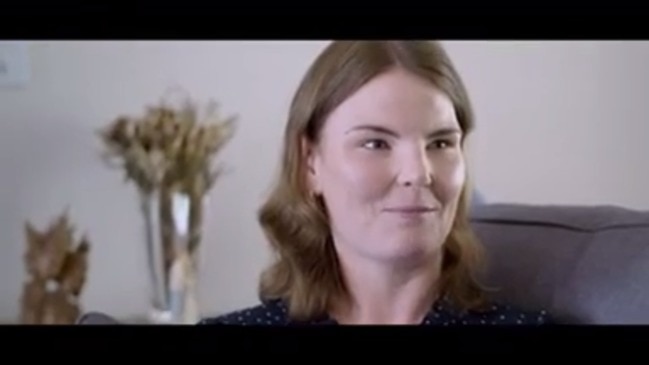
QWeekend
Don't miss out on the headlines from QWeekend. Followed categories will be added to My News.
Sitting on her lounge chair, Jacque Antwis quietly grieves for her baby son, lost to her family at just 10 days of age. With a box of tissues by her side and a heartache that threatens to overwhelm her, she expresses the breast milk that can no longer nourish her fourth-born child.
Baby Edison Finn Antwis – Edi – who died from a devastating heart condition called hypoplastic left heart syndrome in November 2019, still had something left to give this world, a legacy beyond his fleeting life.
Antwis, 36, of Woombye in the Sunshine Coast hinterland, knew her son may not survive her pregnancy, or beyond a few hours, days or weeks after his birth, or at all.
But she was determined that his life would count in some way.
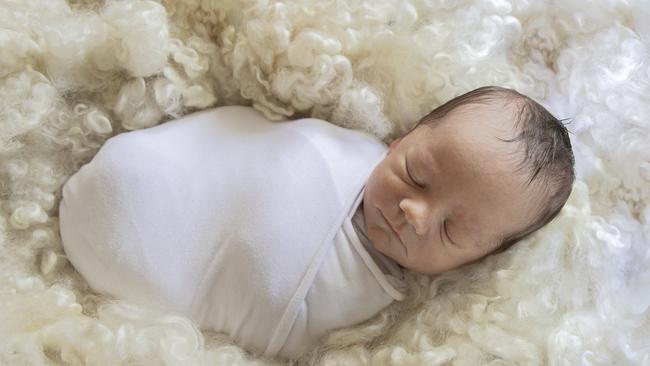
Exercising during pregnancy will supercharge breast milk
Biggest ever donation of breast milk to Qld Milk Bank
With her husband Nathan Antwis, 38, she decided early on she would donate her breast milk – Edi’s milk – to the Queensland Milk Bank, at the Royal Brisbane and Women’s Hospital. And so during the immense anguish after Edison’s death, Antwis, a registered nurse and midwife, sat on her lounge chair and did the one thing she knew she could.
She watched videos of her precious days breastfeeding Edison to stimulate her milk supply. She thought about her sweet baby boy with his intense blue-eyed gaze, and expressed her milk.
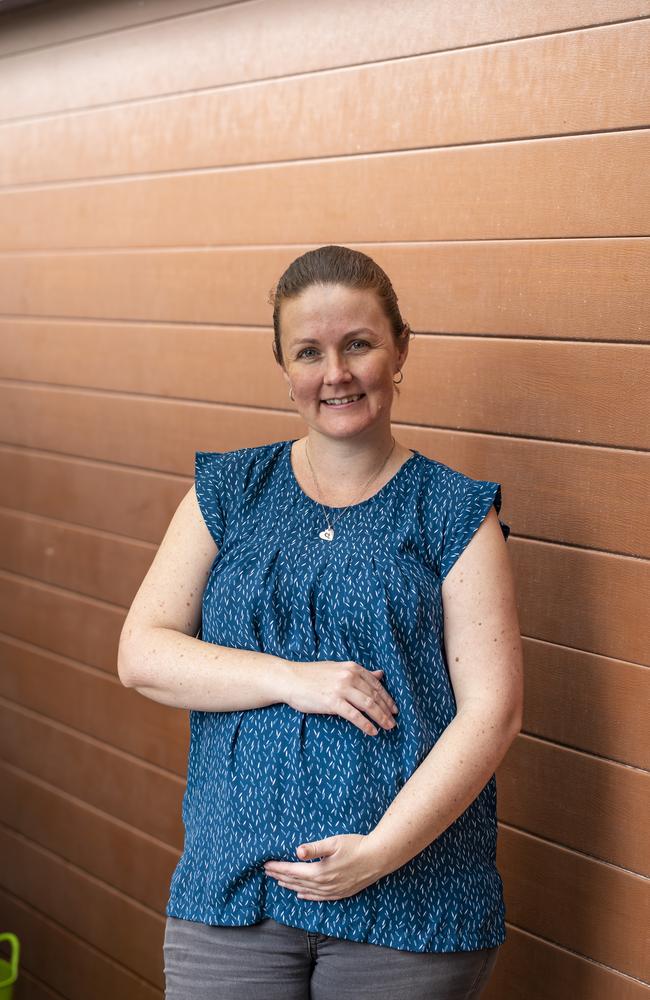
Sometimes, she says, there were more tears than milk but, over about two months, Antwis was able to donate 20 litres of milk – enough to help an estimated 1000 preterm babies in hospitals all over the state.
“It made his life feel more purposeful,” says Antwis who, happily, is again pregnant with
a daughter due in December.
“It makes me feel really proud that I could help make a difference to so many babies. It’s really special.
“Donating the milk was so rewarding and it gave me something to focus on in that early stage when I could have been overwhelmed with my grief. While Edi’s milk couldn’t keep him alive, it was nice to know it could still help other babies.”
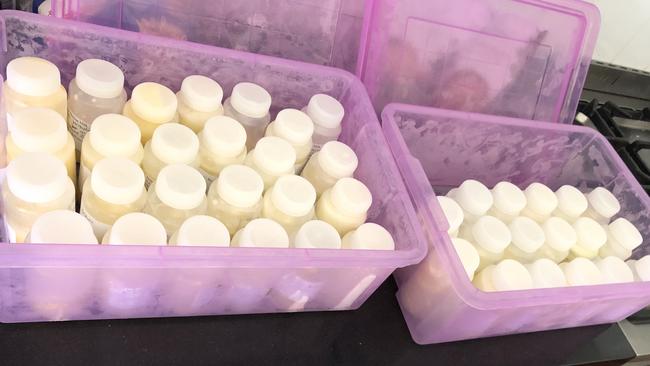
The Queensland Milk Bank was established in 2012 as the third such hospital-based unit in the country.
From small beginnings of about 100 litres collected in the first year, the bank has now recorded a total of about 8000 litres of milk donated from more than 1000 mothers.
The precious “liquid gold” has improved the outcomes of thousands of premature babies at the RBWH and 18 other hospitals throughout Queensland, as well as in Hobart, which doesn’t have a milk bank.
RBWH director of neonatology Pieter Koorts, who has been director of the Queensland Milk Bank since its inception, says donated human milk is lifesaving to preterm babies from 23 to 34 weeks. In the past, premature babies were fed cows’ milk formula but that can cause a devastating, life-threatening gut infection called necrotizing enterocolitis.
Koorts says donated milk, together with the use of probiotics, has improved survival rates of these very young babies by 30 per cent.
“Mother’s milk is the absolute best for preterm babies … it is lifesaving. It makes a massive difference,” he says.
“In that first week or two, mother’s milk is not always available for a variety of reasons, be it stress or geographical isolation.
“We retrieve babies from all over Queensland. We may end up with a small preterm baby in the (RBWH neonatology) unit and the mother is stuck in Rockhampton for a couple of days while she gets better or waits to be transferred.
“It helps to keep formula away from these babies. Formula in a full-term baby is not necessarily that bad but it certainly can be devastating for a small preterm baby.
“Human milk from another mother that we can make safe by pasteurising is a very valuable alternative.”
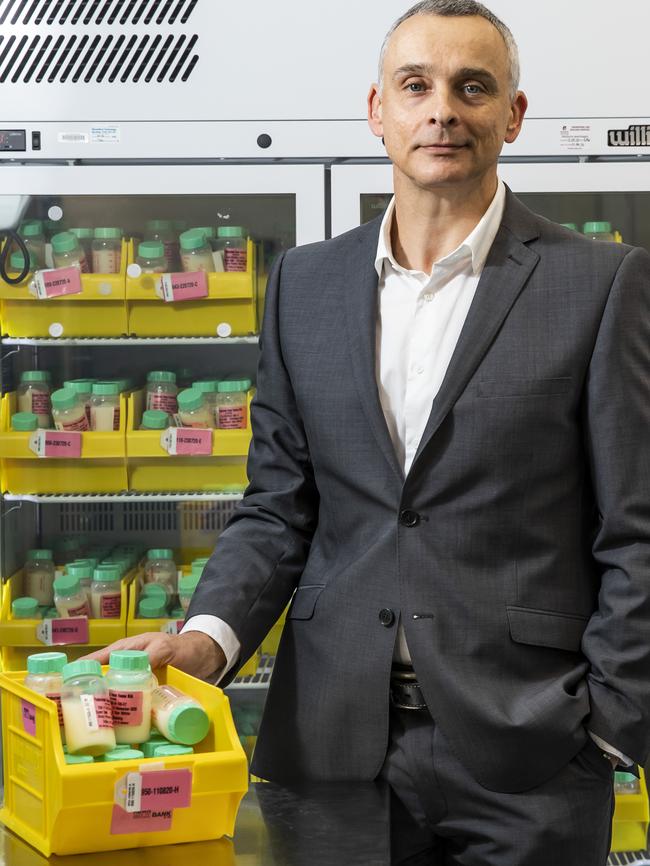
Breast milk donations come from mothers from a range of circumstances – from those who have a healthy baby and an oversupply of milk, to about 20 women each year whose child has died.
The bank was actually started on the back of a bereaved donation from a mother who had been expressing while her baby was in hospital. When her baby died, she was left with 40 litres of breast milk.
Koorts who, at the time, was planning to start the milk bank, drove to the woman’s house at Caboolture to retrieve the milk and it was enough to kickstart the service.
All milk bank donors are required to undertake a thorough screening test and blood tests – similar to what is required of blood donors – to check for various conditions such as HIV, hepatitis B and C, syphilis and rare viruses that can potentially cause cancer.
The milk is then pasteurised and undergoes microbiology testing.
Koorts says the end product costs $300 per litre to produce, a cost picked up by hospitals and provided to babies for free.
The RBWH neonatal nursery uses about 480 to 500 litres of donated milk a year and has enough left over to supply other nurseries around the state and also in Hobart.
“The milk is provided on a cost recovery basis – more of a not-for-profit type scenario – to make sure we can continue to operate,” Koorts says.
“It’s quite a scarce, expensive resource. Nobody can just provide that for free.
“The hospitals pay but they get their money back in terms of a reduction in length of patient stay and reduction in morbidity. One day in the ICU costs $3500-4000; one day in special care costs $500-$1500. Spending $300 on a litre of milk and getting the baby home five days or a week earlier, you get your money back and more.
“Initially, people were a bit sceptical about using someone else’s milk but it is now part of our routine business in the nursery.”
Queensland Milk Bank’s clinical nurse consultant Karen Langford says “you can’t place a value” on the donated milk.
“It makes a big difference to the babies. It gives that baby and that family the best possible chance of a good outcome,” she says.
“For some mothers, they feel the pressure is taken off them to produce enough milk, knowing that there is the donor milk while they work their own supply up.”
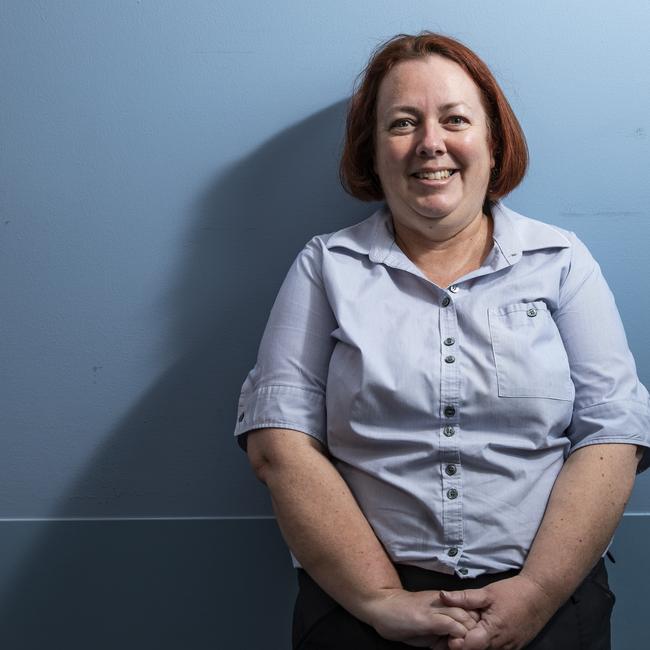
Langford says there are varied and personal reasons why women choose to donate their milk and each will describe the process differently.
“For those women who have lost a baby, I’ve heard their milk described as white tears. Expressing the milk gives them permission to be sad and to grieve,” she says.
“Some women describe it as giving meaning to their child’s life.
“One mother had one twin survive but the other didn’t and she donated her milk in memory of that child’s life. She felt that was a way of making sure he walked the Earth, basically by supplying that breast milk to other infants.
“This gives mothers the opportunity to feel their child’s life mattered and they are able to grieve in their own way.
“Each mother has her own story and reason to donate and I just feel so lucky to be able to hear them.’’
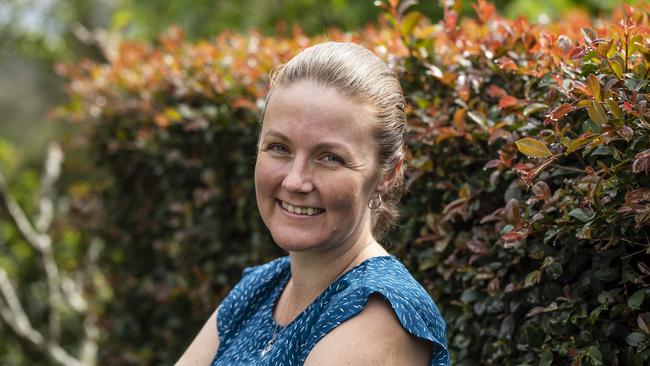
Antwis found out 16 weeks into her pregnancy that Edison had the severe developmental defect. The condition, in which the left side of the heart does not develop properly, is fatal without major surgery.
It requires urgent “replumbing” of the heart over several high-risk, open-heart surgeries, with later complications likely.
Antwis and her husband decided early on not to go down the path of the surgeries.
Rather, they committed to taking their baby son home the day after he was born and creating memories with whatever time they had.
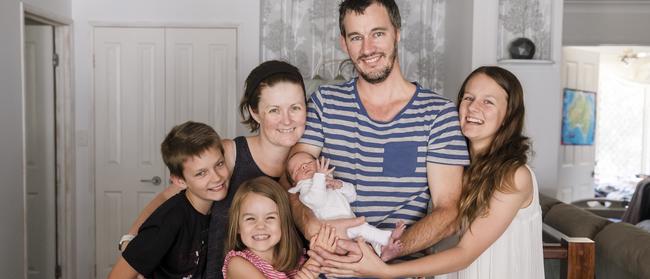
Antwis breastfed Edison, cemented her bond with him and cherished her snuggling baby son. He was simply loved as much as a baby can be.
Edison breastfed well and even reached a “thriving” milestone at seven days of exceeding his birth weight (babies typically lose weight after birth).
Edison’s siblings – Samantha, 13, Bailey, 10, and Charlotte, 4 – got to know their new little brother and posed for “heaps” of precious family photographs. For seven days, Edison seemed perfect and Antwis dared to hope for more time. Perhaps they would get a month.
But by day nine, she could see signs he was struggling and he quickly deteriorated.
After breastfeeding him at 2am on the morning of his tenth day of life, Edison passed away later that day surrounded by his loving parents, siblings and grandparents.
After such a whirlpool of emotions over the past year, Antwis admits she has suffered from anxiety with her current pregnancy, despite scans showing her daughter is healthy.
This baby, Antwis is at pains to say, is her own person, who will have her own name and place in the family.
“She’s not in any way a replacement for Edi,” Antwis says.
“Everything is healthy this time around, thankfully. It is absolutely a relief to know that because I’ve had so much anxiety and I’m still anxious. It’s been awful getting my head around it.
“Edi will always be part of our family. He brought so much love and joy into our lives and I love sharing his story.
“It is an incredible feeling to have been able to donate his breastmilk and know that his life made a difference.” ■
For donation details: metronorth.health.qld.gov.au/rbwh/healthcare-services/milk-bank

